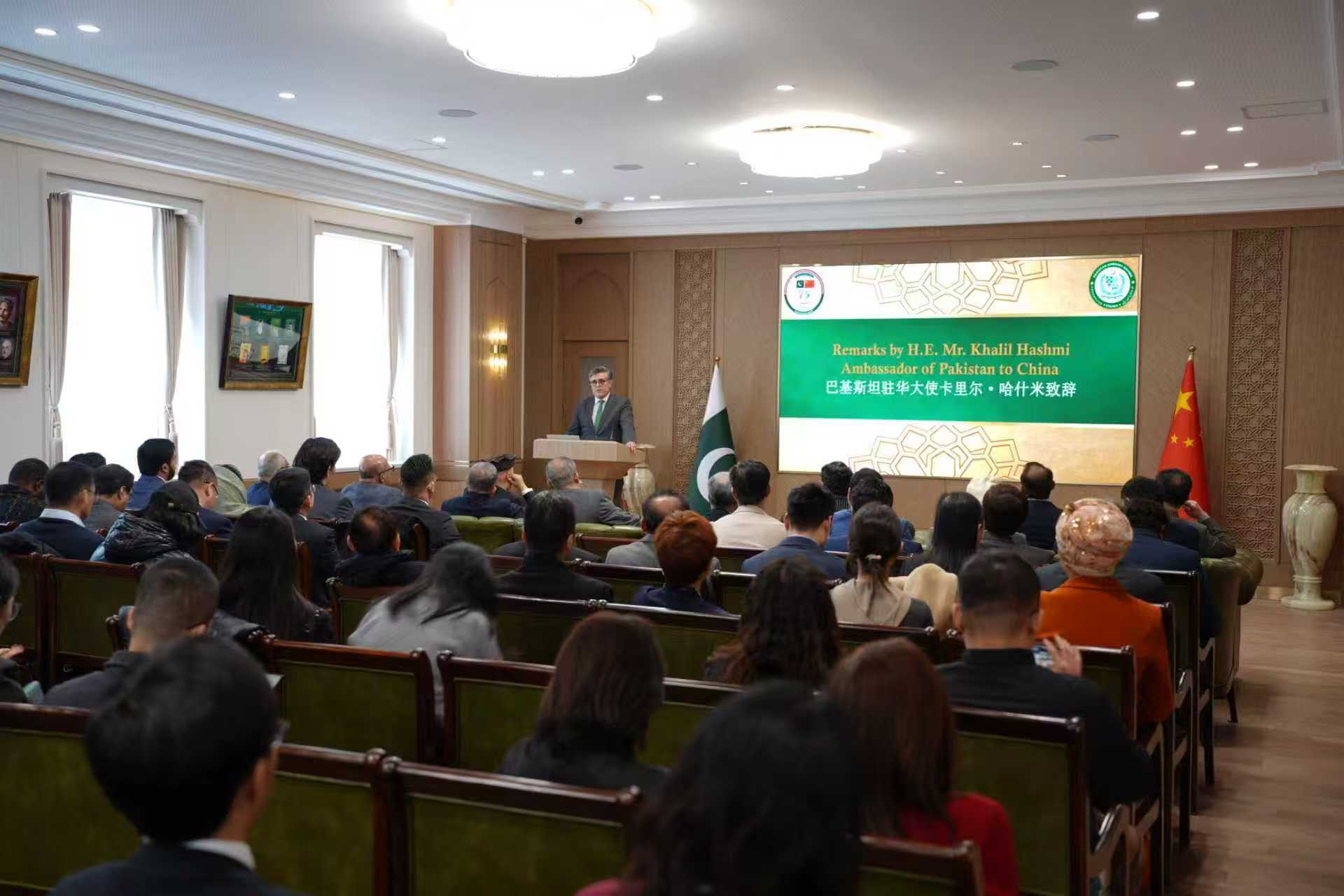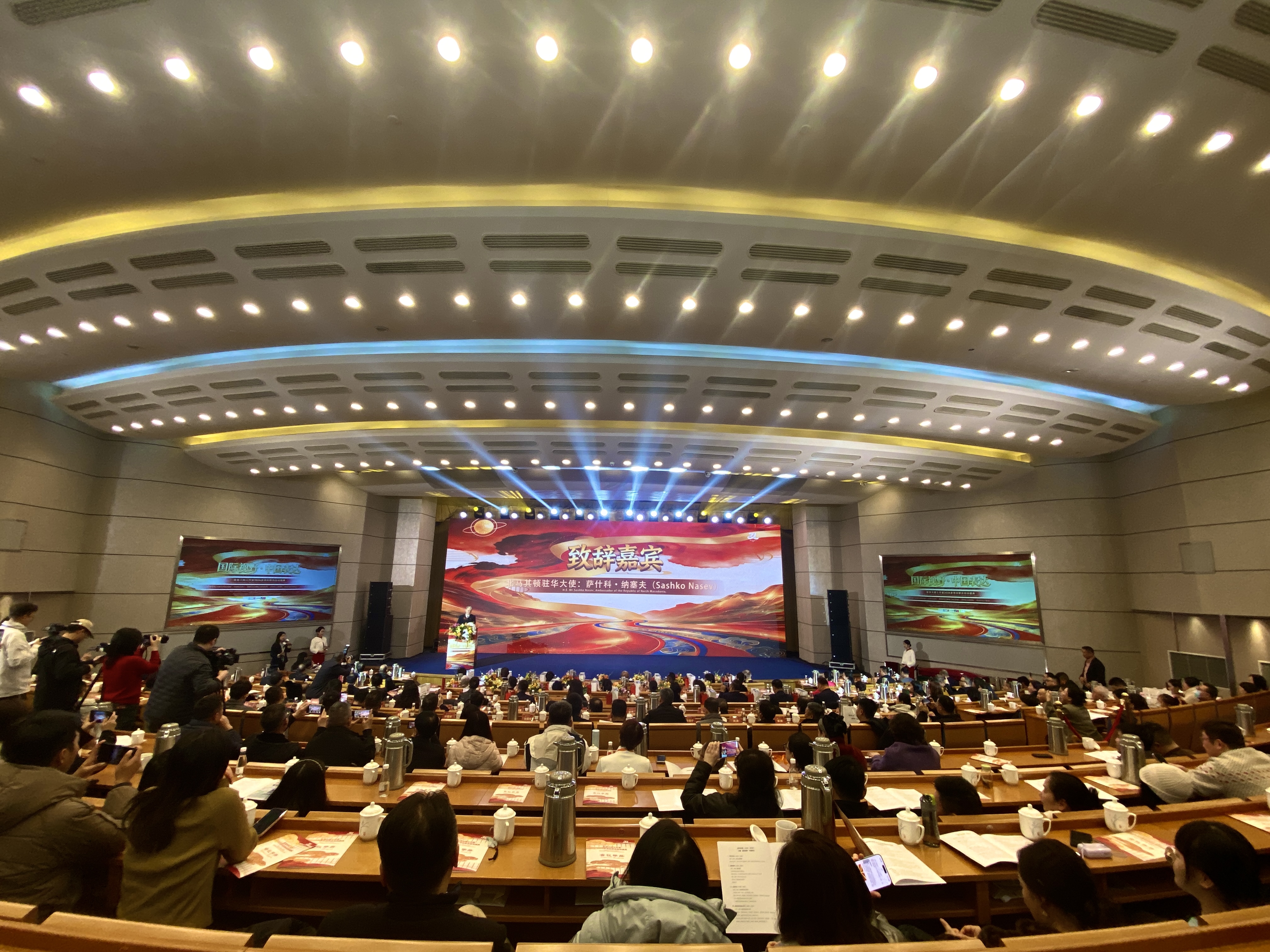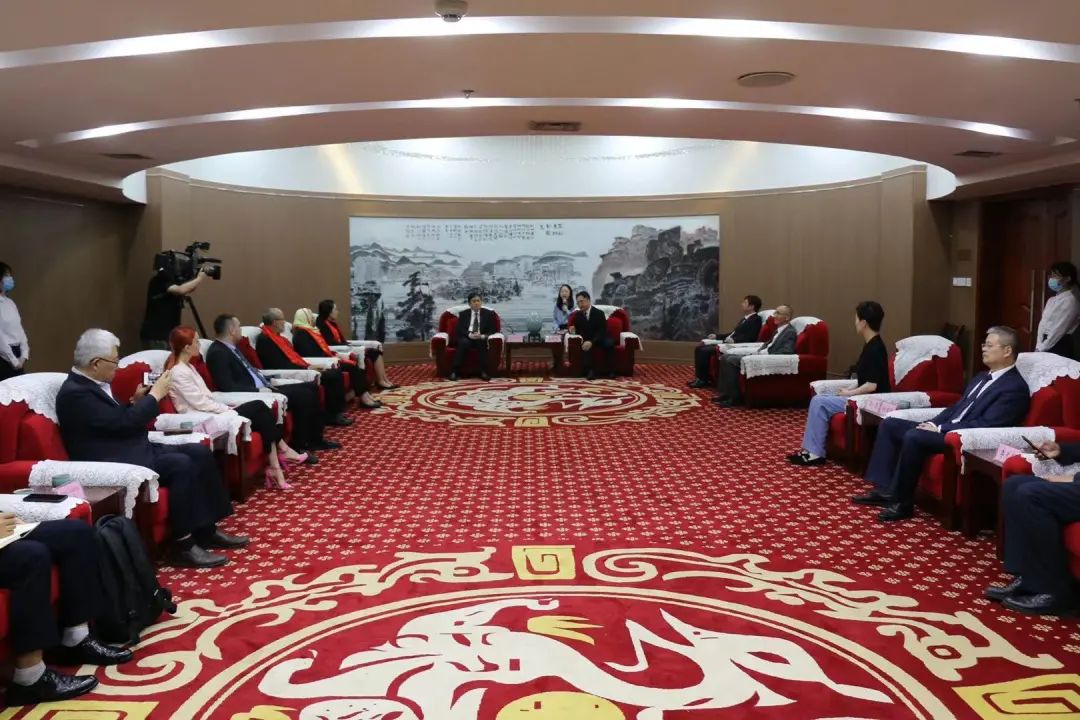US Attempts to Disrupt Iran Nuclear Deal Firmly Rebuffed
来源:
作者: James O’Neill* 点击:
发布时间:2020-09-02 14:25:48
On 14 August 2020 the United Nations Security Council voted overwhelmingly to reject a United States attempt to extend the UN sanctions upon Iran that were imposed as part of the nuclear deal negotiated between the five permanent members of the Security Council plus Germany and Iran in 2015.
The United States, which had been one of the original signatories to the Iran nuclear deal was one of only two members of the United Nations Security Council (the other being non-permanent member the Dominican Republic) to vote in favour of its own motion to extend sanctions on Iran.
United States secretary of state Mike Pompeo referred to the UN vote as “inexcusable”, saying that the “failure to act decisively in defence of international peace and security is in- excusable.” The United States had in fact withdrawn from the agreement it had previously agreed to in May 2018. It is at least arguable that the United States forfeited any moral right to make the comment that Pompeo made given that it was both a signatory to the original agreement, and in the complete absence of any evidence that Iran had done other than comply with its obligations under the deal.
Particularly when viewed in the light of a long list of other unilateral withdrawals from agreements and institutions to which the United States has been a party, it raises the obvious question: why would any country bother to make an agreement with the United States when it is likely to be unilaterally revoked at any time in the future by a different president.
In a rather pathetic attempt to justify its position the United States sought to invoke what it called the “snap back” provisions of the agreement. There is no such clause, but putting the most favourable interpretation on the US decision, it seems to be their argument that the agreement to cancel sanctions can be revoked if there is non-compliance with the terms of the agreement.
Significantly, the United States has been silent on exactly what it is the Iranians are alleged to have done that would justify (notwithstanding the dubious nature of the whole snap back concept) an extension of sanctions. What is really at the heart of Trump’s position, and that of his dangerous secretary of state, is a visceral hatred of Iran and a determination to use any means at its disposal to undermine and potentially overthrow the Tehran government.
Russia’s President Putin sought a meeting of the five permanent members of the Security Council to discuss the issue further. It should be emphasised that Putin was not seeking to backtrack on the United Nations Security Council resolution or the sequence of events that have followed. It might fairly be interpreted as an attempt to rescue Trump from the whole he has dug for himself.
Trump did not seize the opportunity, instead making a vague statement about a possible meeting after the November 2020 presidential election. This was a meaningless suggestion. In all probability Trump will lose the November 2020 presidential election and be, at best, a lame duck president pending the swearing-in of his successor in January 2021. If, as seems likely, he loses the election a pointless meeting with the other permanent Security Council members on the Iran deal will be far from his list of priorities.
More significantly, any meeting after the election will also be done after the United Nations sanctions against Iran have elapsed. It defies credibility that they could be resurrected, especially given the certain opposition of both Russia and China to any such suggestion.
In a statement made by a spokeswoman for the Chinese Ministry of Foreign Affairs Hua Chunjing, she said China “supported the authority of the United Nations and the international order based on international law.”
In a similarly strongly worded statement in response to the United States’ comments and clear intention to ignore the United Nations Security Council resolution Russia’s President Putin said on 14 August, that “like anywhere else in the world, there is no place for blackmail or dictates in this (the Middle East) region, no matter the source. Unilateral approaches will not bring about solutions.”
Putin’s statement went on to add, in unequivocal terms, Russia’s support for the JCPOA. He said that the JCPOA outlined concrete and objective paths to unravelling the tangle of concerns in the region. Putin further stated that there was “no place for blackmail or dictate” in the Persian Gulf region. Unilateral approaches he said, did not help bring about solutions.
The unequivocal position adopted by both Russia and China to the unilateral United States actions with regard to Iran reflect a wider geopolitical development that has been largely unmentioned in commentary on the latest developments, but are nonetheless a crucial factor in understanding the Russian and Chinese approaches.
Quite apart from their evident dislike of yet further illustrations of United States unilateralism and disregard for international agreements, both countries have a significant and growing economic relationship with Iran. A few days ago China and Iran reached agreement in principle for China to invest $400 billion over the next 25 years in a wide range of development projects including investments in oil and gas development, and in constructing vital infrastructure projects such as an upgraded rail network. Russia has similarly entered into infrastructure investment projects with Iran.
Iran, with 80 million+ inhabitants, is clearly seen as a vital partner in the rapidly developing international infrastructure projects of the greater Eurasian landmass including, but not limited to, China’s Belt and Road Initiative.
Clearly, both Russia and China see Iran is a vital link in those projects. Both see undisguised United States efforts at undermining Iran, activity now extending over several decades, as the antithesis of what is in Iran’s and the region’s best interests.
It would be unrealistic to expect the United States to modify its disruptive behaviour. The resiling from the JCPOA is only one illustration of a broader and long-standing policy of disruption and interference not only in Iran but throughout the region. The unequivocal reaction of Russia and China to the latest United States disruptive behaviour is a symptom of a stronger cooperative reaction to United States behaviour.
It sends a clear signal that the era of meddling and disruption by the United States has reached its use by date.
2020年8月14日,联合国安理会以压倒性的多数投票否决了美国延长联合国对伊朗制裁的企图,这一制裁是安理会五个常任理事国加上德国和伊朗在2015年谈判达成的核协议的一部分。
美国是伊朗核协议的原始签署国之一,是联合国安全理事会仅有的两个投票赞成其延长对伊朗制裁动议的成员之一(另一个是非常任理事国多米尼加共和国)。
美国国务卿迈克·蓬佩奥称联合国的投票是“不可原谅的”,他说“未能采取果断行动捍卫国际和平与安全是不可以原谅的。”事实上,美国已经退出了此前于2018年5月达成的协议。鉴于蓬佩奥所做的评论,至少可以说,美国丧失了发表评论的任何道德权利,因为美国既是原始协议的签署国,又完全没有任何证据表明伊朗除了遵守协议规定的义务之外还做了其他事情。
特别是考虑到美国对已经加入的一长串其他协议和机构的单方面退出的情况,这就提出了一个明显的问题:当一项协议可能在未来任何时候被另一位总统单方面撤销时,为什么任何国家还要费心与美国达成协议呢。
为了证明自己的立场,美国试图援引它所称的协议中的“反击”条款,这是一种相当可悲的企图。没有这样的条款,但对美国的决定给出最有利的解释,他们的论点似乎是,如果不遵守协议条款,取消制裁的协议可以撤销。
值得注意的是,美国一直对伊朗人被指控的事情保持沉默,这样做就有理由延长制裁(尽管整个快速反击概念的性质可疑)。特朗普及其危险的国务卿的真正核心立场,是对伊朗发自内心的仇恨,以及利用一切手段削弱并有可能推翻德黑兰政府的决心。
俄罗斯总统普京寻求召开安理会五个常任理事国会议,进一步讨论这个问题。应该强调的是,普京并没有寻求在联合国安理会决议或随后发生的一系列事件上追溯。这可能被公平地解释为试图将特朗普从他为自己挖掘的一切中拯救出来。
特朗普没有抓住机会,而是就2020年11月总统选举后可能举行的会议发表了一份模糊声明。这是一个毫无意义的建议。特朗普极有可能在2020年11月的总统选举中落败,在2021年1月他的继任者宣誓就职之前,充其量也只是一个跛脚鸭总统。他很可能在选举中失败,那么与安理会其他常任理事国就伊朗协议举行的毫无意义的会议将远离他的优先事项清单。
更重要的是,选举后的任何会议也将在联合国对伊朗的制裁结束后举行。制裁可能延长是不可信的,尤其是考虑到俄罗斯和中国都反对任何此类建议。
中国外交部发言人华春莹在一份声明中说,中国“支持联合国的权威和基于国际法的国际秩序。”
俄罗斯总统普京在8月14日针对美国的评论和无视联合国安全理事会决议的明确意图发表了措辞同样强烈的声明,他说,“同世界上任何其他地方一样,在这个(中东)地区,无论来自何方,都没有勒索或发号施令的余地。单边做法不会带来解决办法。”
普京的声明接着明确表示,俄罗斯支持《联合全面行动计划》。他说,《联合全面行动计划》概述了解决该地区各种问题的具体和客观的途径。普京进一步表示,波斯湾地区“没有勒索或发号施令的余地”,他说,单边措施无助于解决问题。
俄罗斯和中国对美国在伊朗问题上的单方面行动采取的明确立场,反映了一个更广泛的地缘政治事态发展,这一事态发展在对最新事态发展的评论中基本上没有提及,但却是理解俄罗斯和中国做法的一个关键因素。
两国除了明显不喜欢进一步说明美国的单边主义和无视国际协定之外,还与伊朗有着重要和日益增长的经济关系。几天前,中国和伊朗原则上达成协议,中国将在未来25年投资4000亿美元,用于一系列开发项目,包括石油和天然气开发投资,以及建设重要的基础设施项目,如升级的铁路网。俄罗斯也同样与伊朗签订了基础设施投资项目。
拥有8000多万人口的伊朗显然被视为欧亚大陆快速发展的国际基础设施项目的重要合作伙伴,包括但不限于中国的一带一路倡议。
显然,俄罗斯和中国都认为伊朗是这些项目中至关重要的一环。两国都认为,美国公然在暗中破坏伊朗的努力,这种行为现在已经延续了几十年,与伊朗和该地区的最佳利益背道而驰。
指望美国改变其破坏性行为是不现实的。退出《联合全面行动计划》只是表明不仅在伊朗而且在整个地区长期存在的更广泛的破坏和干涉政策的一个例子。俄罗斯和中国对美国最近的破坏行为的明确反应,是对美国行为的更强有力的合作反应的一个征兆。
它发出了一个明确的信号,即美国干预和破坏的时代即将成为过去。
(作者是律师和政治分析师 James O’Neill)
(责任编辑: James O’Neill*)
The United States, which had been one of the original signatories to the Iran nuclear deal was one of only two members of the United Nations Security Council (the other being non-permanent member the Dominican Republic) to vote in favour of its own motion to extend sanctions on Iran.
United States secretary of state Mike Pompeo referred to the UN vote as “inexcusable”, saying that the “failure to act decisively in defence of international peace and security is in- excusable.” The United States had in fact withdrawn from the agreement it had previously agreed to in May 2018. It is at least arguable that the United States forfeited any moral right to make the comment that Pompeo made given that it was both a signatory to the original agreement, and in the complete absence of any evidence that Iran had done other than comply with its obligations under the deal.
Particularly when viewed in the light of a long list of other unilateral withdrawals from agreements and institutions to which the United States has been a party, it raises the obvious question: why would any country bother to make an agreement with the United States when it is likely to be unilaterally revoked at any time in the future by a different president.
In a rather pathetic attempt to justify its position the United States sought to invoke what it called the “snap back” provisions of the agreement. There is no such clause, but putting the most favourable interpretation on the US decision, it seems to be their argument that the agreement to cancel sanctions can be revoked if there is non-compliance with the terms of the agreement.
Significantly, the United States has been silent on exactly what it is the Iranians are alleged to have done that would justify (notwithstanding the dubious nature of the whole snap back concept) an extension of sanctions. What is really at the heart of Trump’s position, and that of his dangerous secretary of state, is a visceral hatred of Iran and a determination to use any means at its disposal to undermine and potentially overthrow the Tehran government.
Russia’s President Putin sought a meeting of the five permanent members of the Security Council to discuss the issue further. It should be emphasised that Putin was not seeking to backtrack on the United Nations Security Council resolution or the sequence of events that have followed. It might fairly be interpreted as an attempt to rescue Trump from the whole he has dug for himself.
Trump did not seize the opportunity, instead making a vague statement about a possible meeting after the November 2020 presidential election. This was a meaningless suggestion. In all probability Trump will lose the November 2020 presidential election and be, at best, a lame duck president pending the swearing-in of his successor in January 2021. If, as seems likely, he loses the election a pointless meeting with the other permanent Security Council members on the Iran deal will be far from his list of priorities.
More significantly, any meeting after the election will also be done after the United Nations sanctions against Iran have elapsed. It defies credibility that they could be resurrected, especially given the certain opposition of both Russia and China to any such suggestion.
In a statement made by a spokeswoman for the Chinese Ministry of Foreign Affairs Hua Chunjing, she said China “supported the authority of the United Nations and the international order based on international law.”
In a similarly strongly worded statement in response to the United States’ comments and clear intention to ignore the United Nations Security Council resolution Russia’s President Putin said on 14 August, that “like anywhere else in the world, there is no place for blackmail or dictates in this (the Middle East) region, no matter the source. Unilateral approaches will not bring about solutions.”
Putin’s statement went on to add, in unequivocal terms, Russia’s support for the JCPOA. He said that the JCPOA outlined concrete and objective paths to unravelling the tangle of concerns in the region. Putin further stated that there was “no place for blackmail or dictate” in the Persian Gulf region. Unilateral approaches he said, did not help bring about solutions.
The unequivocal position adopted by both Russia and China to the unilateral United States actions with regard to Iran reflect a wider geopolitical development that has been largely unmentioned in commentary on the latest developments, but are nonetheless a crucial factor in understanding the Russian and Chinese approaches.
Quite apart from their evident dislike of yet further illustrations of United States unilateralism and disregard for international agreements, both countries have a significant and growing economic relationship with Iran. A few days ago China and Iran reached agreement in principle for China to invest $400 billion over the next 25 years in a wide range of development projects including investments in oil and gas development, and in constructing vital infrastructure projects such as an upgraded rail network. Russia has similarly entered into infrastructure investment projects with Iran.
Iran, with 80 million+ inhabitants, is clearly seen as a vital partner in the rapidly developing international infrastructure projects of the greater Eurasian landmass including, but not limited to, China’s Belt and Road Initiative.
Clearly, both Russia and China see Iran is a vital link in those projects. Both see undisguised United States efforts at undermining Iran, activity now extending over several decades, as the antithesis of what is in Iran’s and the region’s best interests.
It would be unrealistic to expect the United States to modify its disruptive behaviour. The resiling from the JCPOA is only one illustration of a broader and long-standing policy of disruption and interference not only in Iran but throughout the region. The unequivocal reaction of Russia and China to the latest United States disruptive behaviour is a symptom of a stronger cooperative reaction to United States behaviour.
It sends a clear signal that the era of meddling and disruption by the United States has reached its use by date.
2020年8月14日,联合国安理会以压倒性的多数投票否决了美国延长联合国对伊朗制裁的企图,这一制裁是安理会五个常任理事国加上德国和伊朗在2015年谈判达成的核协议的一部分。
美国是伊朗核协议的原始签署国之一,是联合国安全理事会仅有的两个投票赞成其延长对伊朗制裁动议的成员之一(另一个是非常任理事国多米尼加共和国)。
美国国务卿迈克·蓬佩奥称联合国的投票是“不可原谅的”,他说“未能采取果断行动捍卫国际和平与安全是不可以原谅的。”事实上,美国已经退出了此前于2018年5月达成的协议。鉴于蓬佩奥所做的评论,至少可以说,美国丧失了发表评论的任何道德权利,因为美国既是原始协议的签署国,又完全没有任何证据表明伊朗除了遵守协议规定的义务之外还做了其他事情。
特别是考虑到美国对已经加入的一长串其他协议和机构的单方面退出的情况,这就提出了一个明显的问题:当一项协议可能在未来任何时候被另一位总统单方面撤销时,为什么任何国家还要费心与美国达成协议呢。
为了证明自己的立场,美国试图援引它所称的协议中的“反击”条款,这是一种相当可悲的企图。没有这样的条款,但对美国的决定给出最有利的解释,他们的论点似乎是,如果不遵守协议条款,取消制裁的协议可以撤销。
值得注意的是,美国一直对伊朗人被指控的事情保持沉默,这样做就有理由延长制裁(尽管整个快速反击概念的性质可疑)。特朗普及其危险的国务卿的真正核心立场,是对伊朗发自内心的仇恨,以及利用一切手段削弱并有可能推翻德黑兰政府的决心。
俄罗斯总统普京寻求召开安理会五个常任理事国会议,进一步讨论这个问题。应该强调的是,普京并没有寻求在联合国安理会决议或随后发生的一系列事件上追溯。这可能被公平地解释为试图将特朗普从他为自己挖掘的一切中拯救出来。
特朗普没有抓住机会,而是就2020年11月总统选举后可能举行的会议发表了一份模糊声明。这是一个毫无意义的建议。特朗普极有可能在2020年11月的总统选举中落败,在2021年1月他的继任者宣誓就职之前,充其量也只是一个跛脚鸭总统。他很可能在选举中失败,那么与安理会其他常任理事国就伊朗协议举行的毫无意义的会议将远离他的优先事项清单。
更重要的是,选举后的任何会议也将在联合国对伊朗的制裁结束后举行。制裁可能延长是不可信的,尤其是考虑到俄罗斯和中国都反对任何此类建议。
中国外交部发言人华春莹在一份声明中说,中国“支持联合国的权威和基于国际法的国际秩序。”
俄罗斯总统普京在8月14日针对美国的评论和无视联合国安全理事会决议的明确意图发表了措辞同样强烈的声明,他说,“同世界上任何其他地方一样,在这个(中东)地区,无论来自何方,都没有勒索或发号施令的余地。单边做法不会带来解决办法。”
普京的声明接着明确表示,俄罗斯支持《联合全面行动计划》。他说,《联合全面行动计划》概述了解决该地区各种问题的具体和客观的途径。普京进一步表示,波斯湾地区“没有勒索或发号施令的余地”,他说,单边措施无助于解决问题。
俄罗斯和中国对美国在伊朗问题上的单方面行动采取的明确立场,反映了一个更广泛的地缘政治事态发展,这一事态发展在对最新事态发展的评论中基本上没有提及,但却是理解俄罗斯和中国做法的一个关键因素。
两国除了明显不喜欢进一步说明美国的单边主义和无视国际协定之外,还与伊朗有着重要和日益增长的经济关系。几天前,中国和伊朗原则上达成协议,中国将在未来25年投资4000亿美元,用于一系列开发项目,包括石油和天然气开发投资,以及建设重要的基础设施项目,如升级的铁路网。俄罗斯也同样与伊朗签订了基础设施投资项目。
拥有8000多万人口的伊朗显然被视为欧亚大陆快速发展的国际基础设施项目的重要合作伙伴,包括但不限于中国的一带一路倡议。
显然,俄罗斯和中国都认为伊朗是这些项目中至关重要的一环。两国都认为,美国公然在暗中破坏伊朗的努力,这种行为现在已经延续了几十年,与伊朗和该地区的最佳利益背道而驰。
指望美国改变其破坏性行为是不现实的。退出《联合全面行动计划》只是表明不仅在伊朗而且在整个地区长期存在的更广泛的破坏和干涉政策的一个例子。俄罗斯和中国对美国最近的破坏行为的明确反应,是对美国行为的更强有力的合作反应的一个征兆。
它发出了一个明确的信号,即美国干预和破坏的时代即将成为过去。
(作者是律师和政治分析师 James O’Neill)
版权及免责声明
1、本网转载媒体稿件旨在传播更多有益信息,并不代表同意该观点,本网不承担稿件侵权行为的连带责任;
2、在本网博客/论坛发表言论者,文责自负。
推荐文章
热点内容
-
 查谟和克什米尔历史与现状研讨会在
2026年2月5日,巴基斯坦驻华使馆举办“查谟和克什米尔历史与现状研讨会”,巴基斯坦使馆外交官和数十位中外学者出席。使馆工作人员首先宣读了巴基斯坦总理夏巴兹·谢
查谟和克什米尔历史与现状研讨会在
2026年2月5日,巴基斯坦驻华使馆举办“查谟和克什米尔历史与现状研讨会”,巴基斯坦使馆外交官和数十位中外学者出席。使馆工作人员首先宣读了巴基斯坦总理夏巴兹·谢
-
 CECTV《声起东方》全球中文经
制片主任:李敏
CECTV《声起东方》全球中文经
制片主任:李敏
- ・《少林点穴的隐秘力量》纪录片在郑州圆满杀青
- ・2025GT世界挑战赛北京亦庄站启幕
- ・北京市侨联召开海外北京会座谈交流会
- ・2025GT世界挑战赛北京亦庄站圆满落幕
- ・短片【未封存的岁月日记】的时代意义
- ・侨智未来·创新人才发展活动举办
- ・2025GT世界挑战赛北京亦庄站筹备进入冲刺阶段
- ・无锡味道 世界共享LA LISTE 2025全球美食
- ・2025“校园星主播”国际展演(韩国站)圆满结束
- ・“勇气少年团”综艺节目开始选拨啦
- ・CECTV《声起东方》全球中文经典朗读节目
- ・美国迈阿密大学访问学者项目
- ・2012第二届中国国际积极心理学大会
- ・首届世界香具文化大会暨高峰论坛在浙江龙泉圆满召开
最新文章
- ・查谟和克什米尔历史与现状研讨会在京举行
- ・时隔33年重聚首!英达携《我爱我家》原班人马打造新剧
- ・暖意初萌,蓄势而生,国共两党智库论坛在立春时节举办恰
- ・张录工作室2026多项目联合计划在杭启幕 构建文化出
- ・AI漫剧人才评价标准研讨会在京举行
- ・百集电视访谈栏目《健康大讲堂》----磷虾油与健康第
- ・百集电视访谈栏目《健康大讲堂》----特医食品与健康
- ・“汇聚力量·点燃希望”大手牵小手“我和星宝过大年”暨
- ・古巴民族英雄何塞·马蒂诞辰173周年暨菲德尔·卡斯特
- ・以象为维 医艺新章
- ・CECTV《声起东方》全球中文经典朗读节目
- ・“勇气少年团”综艺节目开始选拨啦
- ・2025“校园星主播”国际展演(韩国站)圆满结束
- ・首届世界香具文化大会暨高峰论坛在浙江龙泉圆满召开
- ・2012第二届中国国际积极心理学大会
- ・美国迈阿密大学访问学者项目









